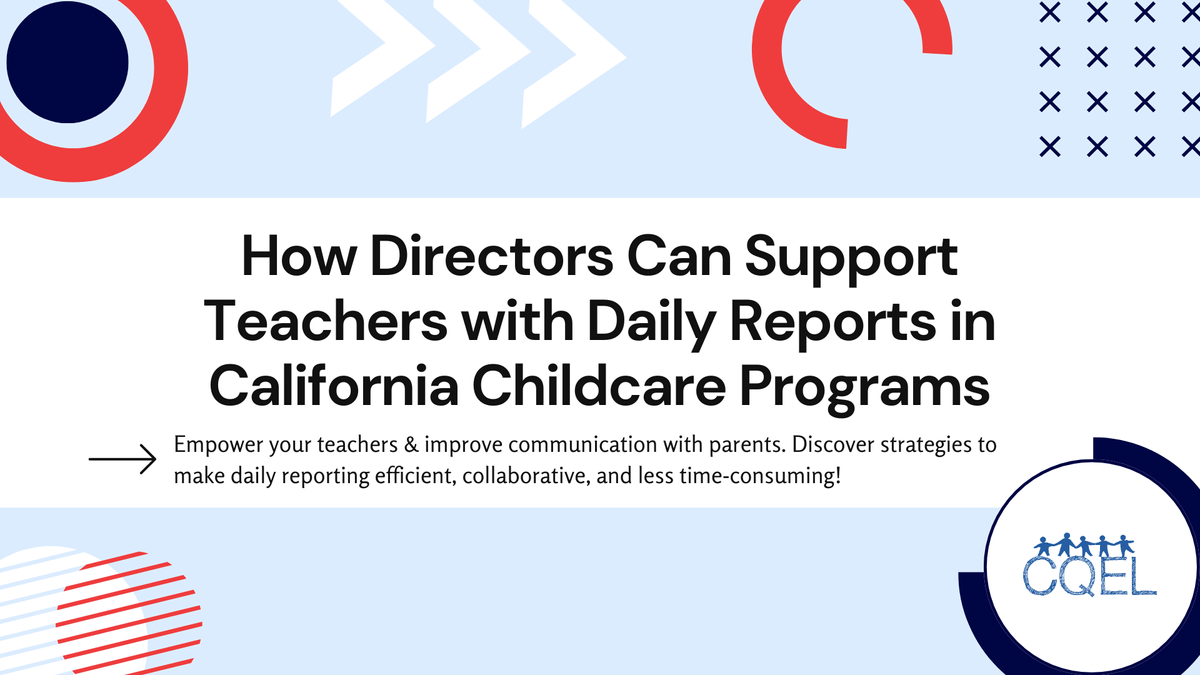How Directors Can Support Teachers with Daily Reports in California Childcare Programs
Streamline Daily Reports! ⏰ Empower your teachers & improve communication with parents. Discover strategies to make daily reporting efficient, collaborative, and less time-consuming!

Daily reports are the lifeblood of communication between childcare providers and parents. They offer a valuable window into a child's day, detailing everything from meals and naps to developmental milestones and emotional well-being. However, for busy teachers, filling out daily reports can feel like a time-consuming chore. As a director in a California childcare program, you play a crucial role in streamlining this process and supporting your teachers in crafting informative and efficient daily reports. Let's explore some strategies you can implement to make daily reporting a collaborative and less burdensome experience for your teachers.
Effective communication starts with clear expectations. Establish a standardized format for daily reports across all age groups (infants, toddlers, preschoolers) in your program. This ensures consistency and allows parents to easily track their child's progress over time. Consider using online reporting systems or mobile apps that can streamline the data entry process and minimize paperwork. Furthermore, hold regular meetings or workshops to familiarize teachers with the reporting system and address any questions or concerns they might have.
Beyond providing clear guidelines, consider ways to lighten the workload associated with daily reports. One strategy is to encourage teachers to take notes throughout the day. Jotting down key observations about diaper changes, feeding times, or interesting moments of play allows them to capture details while they're fresh in their minds. These notes can then be easily compiled into a comprehensive report at the end of the day. Additionally, consider staggering report writing responsibilities across different team members – perhaps one teacher focuses on documenting meals and naps, while another tackles sleep routines and communication highlights. This collaborative approach can distribute the workload and ensure different perspectives are captured in the report.
Technology can be a powerful ally in streamlining daily reports. Explore online platforms designed specifically for childcare providers. These platforms often allow teachers to record observations, track developmental milestones, and even share photos and videos with parents directly through the app. This not only saves time on paperwork but also provides a more engaging format for parents to access information about their child's day.
Finally, fostering open communication between teachers and parents can significantly reduce the burden of daily reporting. Encourage teachers to communicate any notable events or observations directly with parents throughout the day. This allows parents to stay informed and reduces the need for repetitive details in the daily report itself. Furthermore, holding regular parent-teacher conferences creates an opportunity for in-depth discussions about a child's progress, complementing the information provided in the daily report.
By implementing these strategies, you can transform daily reporting from a tedious task to a collaborative tool that fosters strong communication between parents and teachers. Supporting your teachers in this process ultimately benefits everyone involved. Teachers save valuable time and feel empowered to focus on child interactions, parents receive informative updates about their child's day, and children thrive in a nurturing environment where communication is a top priority.
